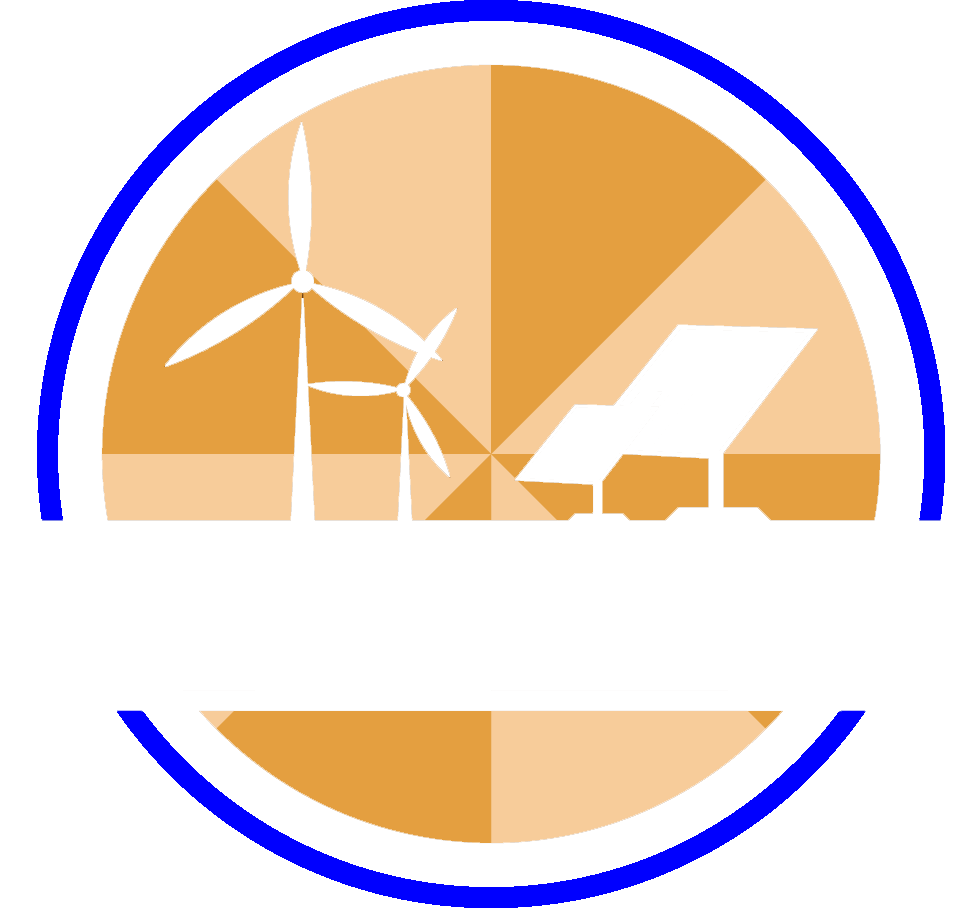
D. Yesudoss, B. Ngozichukwu, D. Mahesh, O. Rajagopal, and A. Djire “Basal Plane Functionalization-Driven Catalytic Enhancement in Pristine and Metal-Incorporated MNenes for Hydrogen Evolution Reaction” Energy Fuels, 2025. https://doi.org/10.1021/acs.energyfuels.5c03766
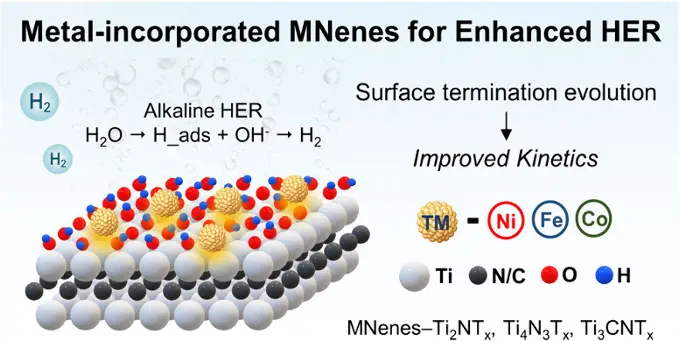
E. Pranada, D. Yesudoss, and A. Djire “From etched to engineered: Confining ruthenium in MXene interlayers for site-controlled hydrogenolysis” Matter, 2025. https://doi.org/10.1016/j.matt.2025.102406
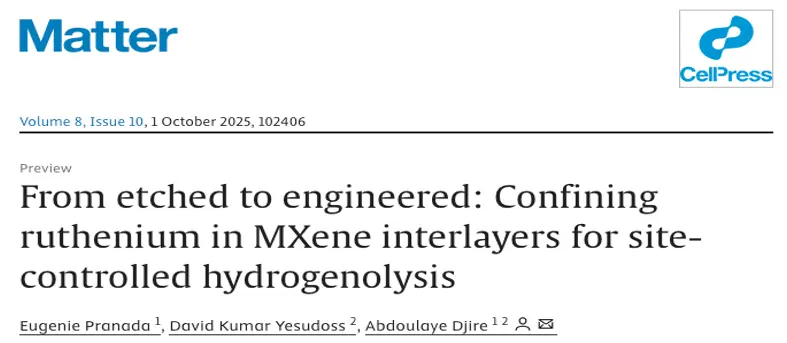
B. Ngozichukwu, N. Kubitza, L. Hoagland, C. S. Birkel, and A. Djire “Synthesis, Characterization, and Electrochemical Behavior of Layered Vanadium Nitride MXene” ACS Nano, 2025. https://doi.org/10.1021/acsnano.5c14516

D. Yesudoss, H. Lai, D. Johnson, M. Lee, B. Reinhart, P. Balbuena, and A. Djire “Lattice-Nitrogen-Mediated Chemistry Suppresses Hydrogen Evolution for Record Faradaic Efficiency in Ammonia Synthesis” J. Am. Chem. Soc., 2025. https://doi.org/10.1021/jacs.5c09104

D. Yesudoss, B. Ngozichukwu, I. Gning, B. Ngom, and A. Djire “Time-Resolved Fourier Transform Infrared Spectroelectrochemical Investigation of Nitrate Reduction to Ammonia” ACS Energy Letters, 2025. https://doi.org/10.1021/acsenergylett.5c00553
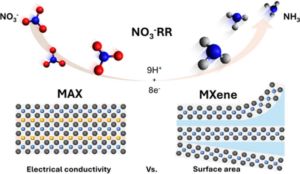
R. Yoo, B. Ngozichukwu, D. Yesudoss, H. Lai, K. Arole, M. J. Green, P. Balbuena, and A. Djire “Vibrational Property Tuning of MXenes Revealed by Sublattice N Reactivity in Polar and Nonpolar Solvents” J. Am. Chem. Soc, 2025. https://doi.org/10.1021/jacs.4c13878
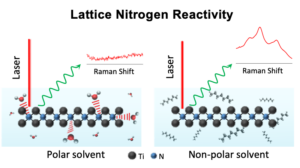
E. Pranada, B. Ngozichukwu, R. Yoo, D. Johnson, M. A. Barteau, A. Abdel-Wahab, and A. Djire “Hydrogen Evolution and Oxygen Reduction on OH/F-Terminated Titanium Nitride MXene Reveal the Role of the Surface Termination Group in Electrocatalysis” ACS Catalysis, 2025. https://doi.org/10.1021/acscatal.4c05247
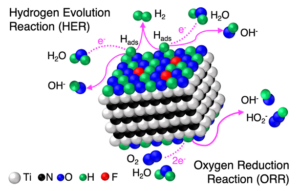
B. Ngozichukwu, E. Pranada, D. Johnson, and A. Djire “Nanolayered Ti4N3Tx MXene Retains its Electrocatalytic Properties After Prolonged Immersion in Solvents” ACS Applied Nano Materials, 2024. https://doi.org/10.1021/acsanm.4c02503
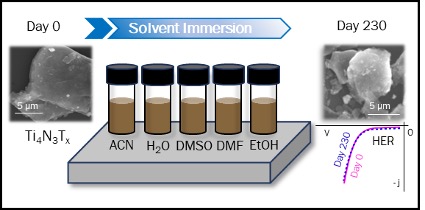
Annabella joins the DJIRE Lab as an undergraduate researcher.
Eugenie presented her work at the 2025 Women in Catalysis and Synthetic Chemistry Symposium in Austin, TX.
Laura and Wynn presented their works at the 2025 AIChE Annual Meeting in Boston, MA.
Rabea joins the DJIRE Lab as a PhD student.
Ray’s work on vibrational property tuning of MXenes was featured in SciTechDaily (Read it here: https://scitechdaily.com/this-wonder-material-could-revolutionize-renewable-energy)
Dr. Djire, Eugenie, and David presented their works at the 68th Welch Conference in Houston, TX. Dr. Djire won 2nd place in Best Poster Presentation.
Laura and Wynn presented their works at the 248th ECS Meeting in Chicago, IL.
Bright presented his work at the 2025 NOBCChE Conference in Atlanta, GA.
Eugenie, David, Wynn, Kash, and Joshua presented their works at the 2025 Texas Section ECS Symposium in College Station, TX. Eugenie won 3rd place in Best Poster Presentation.
Dr. Djire was invited to talk about unlocking new possibilities in energy storage and conversion with MNenes at the 2025 Texas Section ECS Symposium in College Station, TX.
Bright’s work on synthesis, characterization, and electrochemical behavior of vanadium MNene was published in ACS Nano!
Atharva joins DJIRE Lab as an undergraduate researcher.
David’s paper on lattice-nitrogen-mediated chemistry for record faradaic efficiency in ammonia synthesis was published in ACS JACS!
Drew joins the DJIRE Lab as a undergraduate researcher.
Nathan, Joshua, and Kash join DJIRE Lab as members of the DJIRE Summer Program 2025.
Ray successfully defended his PhD defense.
Dr. Djire presented a talk on MNenes: a new frontier in energy and catalysis at the 247th ECS Meeting in Montreal, Canada.
David’s paper on FTIR spectroelectrochemical investigation of nitrate reduction to ammonia was accepted in ACS Energy Letters!
Carter joins the DJIRE Lab as an undergraduate researcher.
Ray’s paper on vibrational property tuning of MXenes in polar and nonpolar solvents was published in ACS JACS!
Eugenie’s paper on the role of surface termination group of OH/F-terminated Ti4N3 MXene in hydrogen evolution and oxygen reduction electrocatalysis was accepted for publication in ACS Catalysis!
Dr. Djire presented a talk at the 12th International Conference of the African Materials Research Society in Kigali, Rwanda.
